HOLIDAY REPORT
While tourist numbers surge, costly rolling blackouts have been a ‘game changer’ for Cape Town’s small businesses
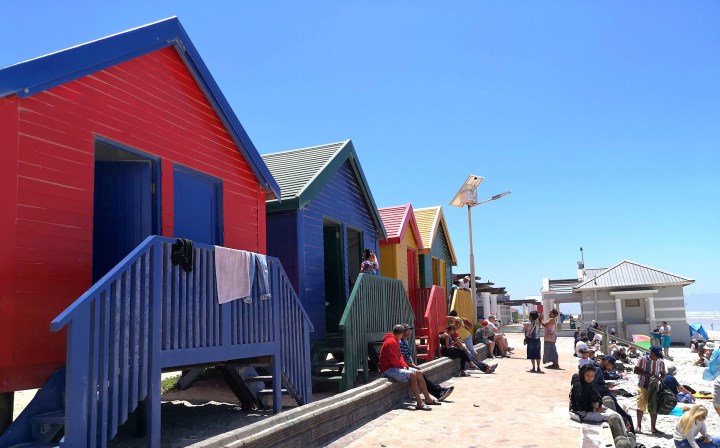
Cape Town is having a bumper holiday season after the Covid pandemic, but rolling blackouts continue to present a challenge for small businesses seeking to capitalise on boosted tourist numbers. Daily Maverick engaged with local business owners about how outages are affecting their day-to-day operations.
After two years of Covid-related uncertainty and restrictions that spelled disaster for the tourism industry, Cape Town is finally experiencing a bumper holiday season. It’s a welcome development for those businesses who cater to the travellers’ market.
The bumper season means a greater number of flights and cruise ships coming into the city, according to James Vos, mayoral member for economic growth and tourism at the City of Cape Town.
Between 7 December 2022 and March 2023, 1.6 million two-way aeroplane seats to Cape Town are expected to be available, with 191 international flights landing in the city per week. This will generate about R8-billion in tourism spend. During the same period, about 75 cruise ships are expected to dock.
“From my conversations with tourism operators throughout the City, our attractions and hotels are reporting fantastic numbers and occupancy. In some cases, fully booked and even surpassing pre-Covid figures,” said Vos.
However, one factor continues to undercut the lucrative opportunities that come with the summer months – rolling blackouts. As the country heads into New Year’s weekend, frequent power outages are an ongoing feature of the South African experience.
Apart from a brief respite on Christmas Day, there have been rolling blackouts throughout the festive period. This week, Stage 3 rolling blackouts have been implemented from 5am to 4pm each day, followed by Stage 4 rolling blackouts from 4pm to 5am. In Cape Town, where outage stages are one below the national level, this means Stage 2 and 3 rolling blackouts.
The City of Cape Town is currently able to limit rolling blackouts in its supply areas by building up reserves from operations at the Steenbras [Dam] hydro pumped storage scheme, said Vos.
In a respite for New Year celebrations, rolling blackouts will be suspended from 4pm on 31 December 2022 until 5am on 2 January 2023, when stage 2 would be implemented until further notice, according to a Friday announcement by Eskom.
Daily Maverick engaged with small business owners in and around Cape Town to find out more about how rolling blackouts are impacting operations during the holiday season.
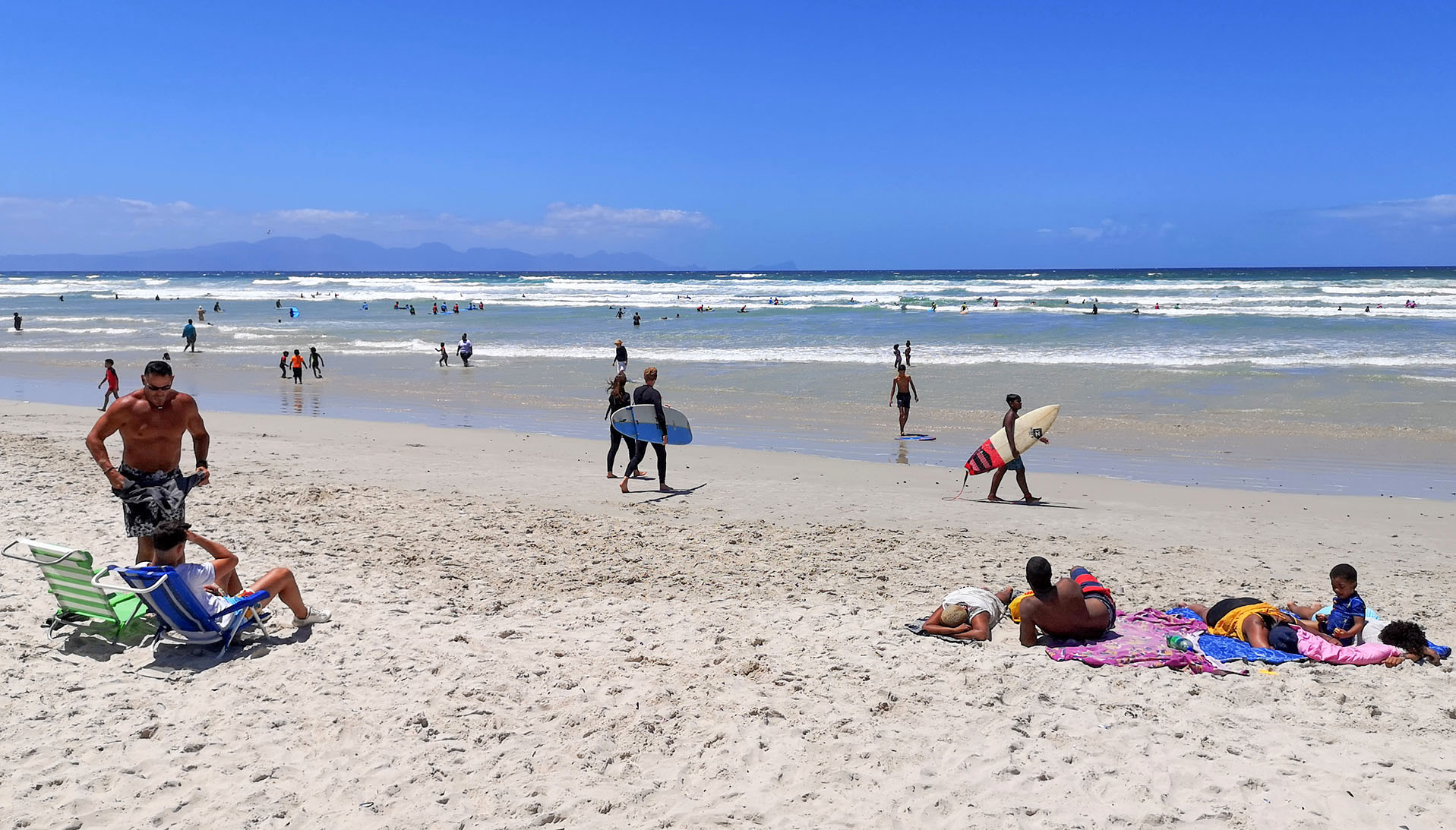
People enjoying the sun and the waves at Muizenberg Beach in Cape Town. (Photo: Tamsin Metelerkamp/Daily Maverick)
Muizenberg
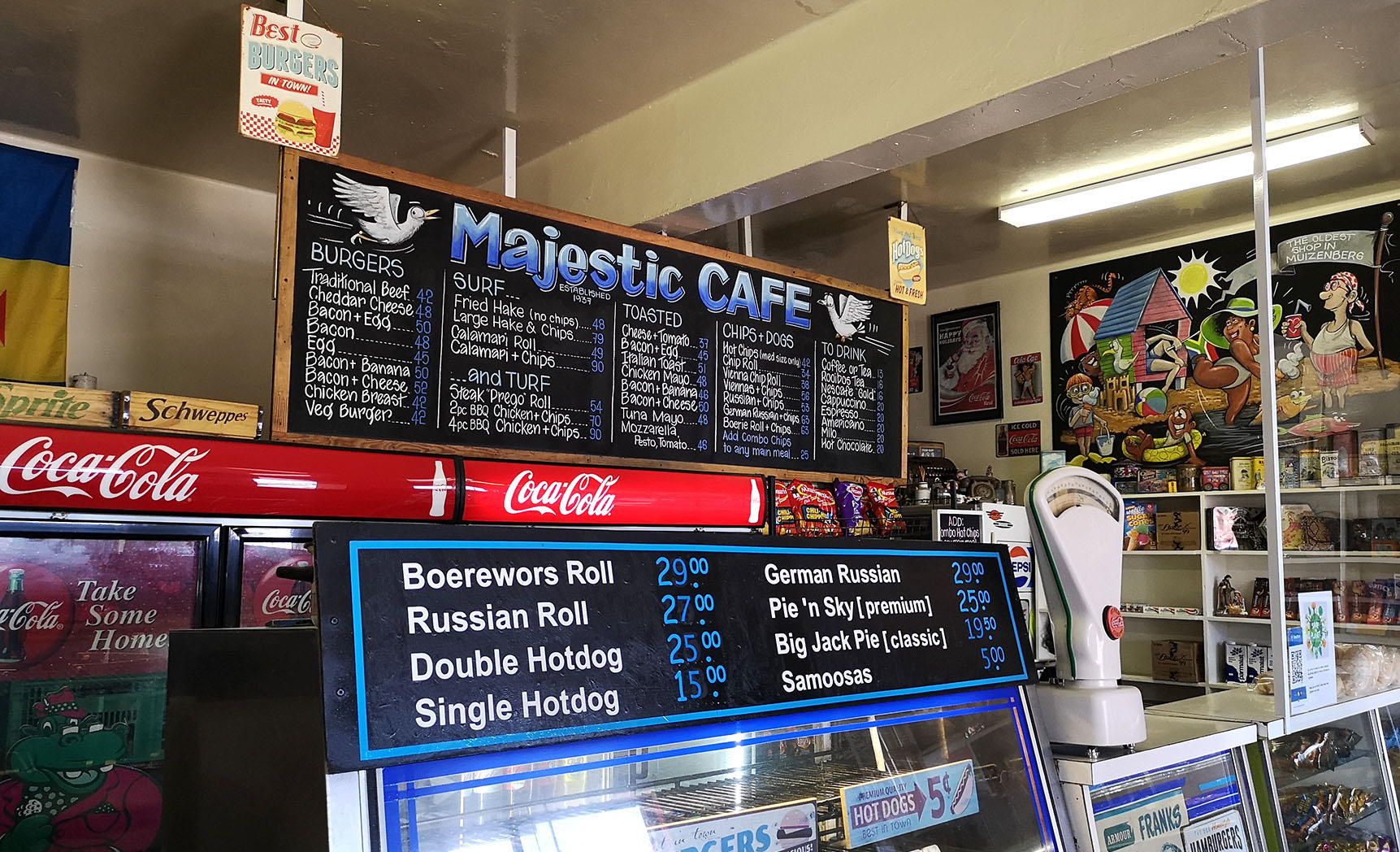
Rolling blackouts have resulted in the Majestic Café in Muizenberg offering a restricted menu, says owner Nelson Da Silva. (Photo: Tamsin Metelerkamp/Daily Maverick)
‘For small business, it’s a killer’ – Nelson Da Silva
Majestic Café, in the coastal tourism suburb of Muizenberg, has been operating for 85 years. It has withstood rough patches before, but none quite like the present, according to owner Nelson Da Silva.
“We had Covid and then you know, the beaches were shut, so you can imagine what that does to our business here,” he said. “Then we had Omicron hit last season, so we never had the season we were anticipating.
“Just when things start to pick up, we’re hit with load shedding… Stage 1, Stage 2, you can still make it, but once you get to Stage 6, then it’s a game changer.”
While generators are marketed as a solution, they are noisy, expensive and only able to support so many appliances. According to Da Silva, a 6.5 kVA generator supports one electric fryer.
“We run the kitchen just with one genny [generator], but it’s such a horrible thing to run, and you have to restrict the menu because you can’t make everything,” he continued.
Da Silva has been unable to stock impulse ice cream products – single-serving ice cream options, such as Magnums that cater to impulse-buying tendencies – because once they soften during rolling blackouts, they don’t freeze again.
“You don’t want to buy too much chicken because everything can spoil. Especially when we go to Stage 6 – we had one Saturday here, four-and-a-half hours, which was just unbelievably horrible,” he said.
“It’s easy for big business to ride this, but for small business, it’s a killer.”
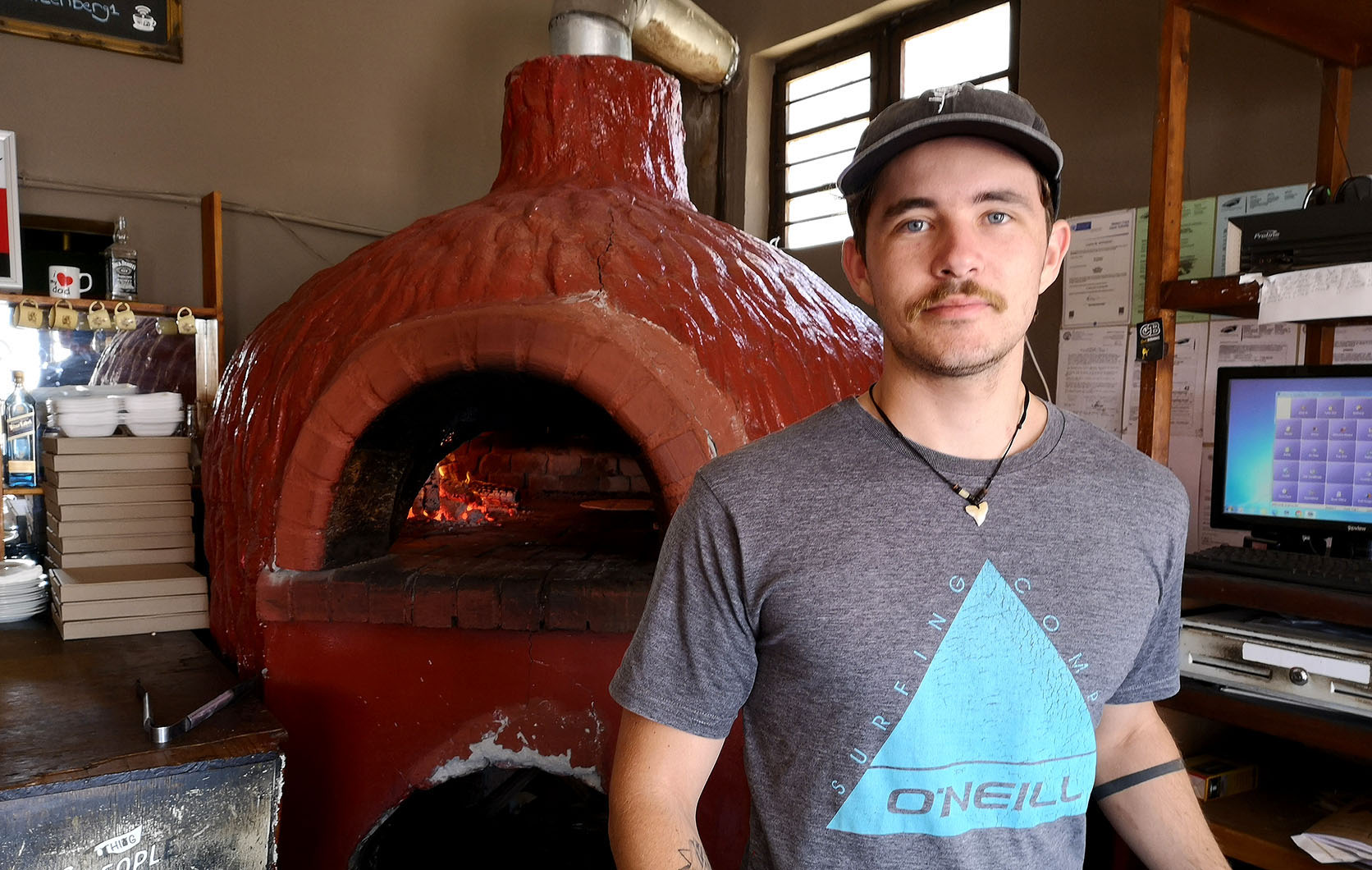
Lagerchinos restaurant in Muizenberg has no generator, but uses an inverter to run basic operations such as the point-of-sale system, according to manager James Bowden. (Photo: Tamsin Metelerkamp/Daily Maverick)
‘Load shedding shut down the sewage plant’ – James Bowden
Lagerchinos restaurant has been in Muizenberg since 2010. According to James Bowden, manager of the restaurant, rolling blackouts had a big impact on operations when it came to screening recent Fifa World Cup and rugby games.
“We don’t own a generator, so we’ve had to hire our generators. Obviously, that takes off a lot of our profit margin for the day,” he said.
“We’ve been looking at [investing in a generator] for the past year. It is expensive. If you’re going to get a big kVA 5 generator for the whole restaurant, it’s upwards of R60,000.”
The restaurant currently has an inverter that runs its basic systems, such as the point-of-sale equipment.
“Because the load shedding shut down the sewage plant… we lost quite a bit of business in the first two weeks of season in December,” said Bowden, referencing the recent closure of Muizenberg Beach.
Muizenberg Beach was closed on 12 December due to an electrical failure at Clifton Road sewer pump station, caused by a faulty ultrasonic device, according to a media release by the City of Cape Town. The public was advised to avoid contact with the water, as exposure could result in gastrointestinal issues.
The City re-opened the section of the beach between Muizenberg Pavilion and Sunrise Beach on 16 December.
Rolling blackouts were identified as being to blame for the sewage spill, with prolonged outages under higher stages of load shedding taking a toll on sewage infrastructure, according to a TimesLIVE report.
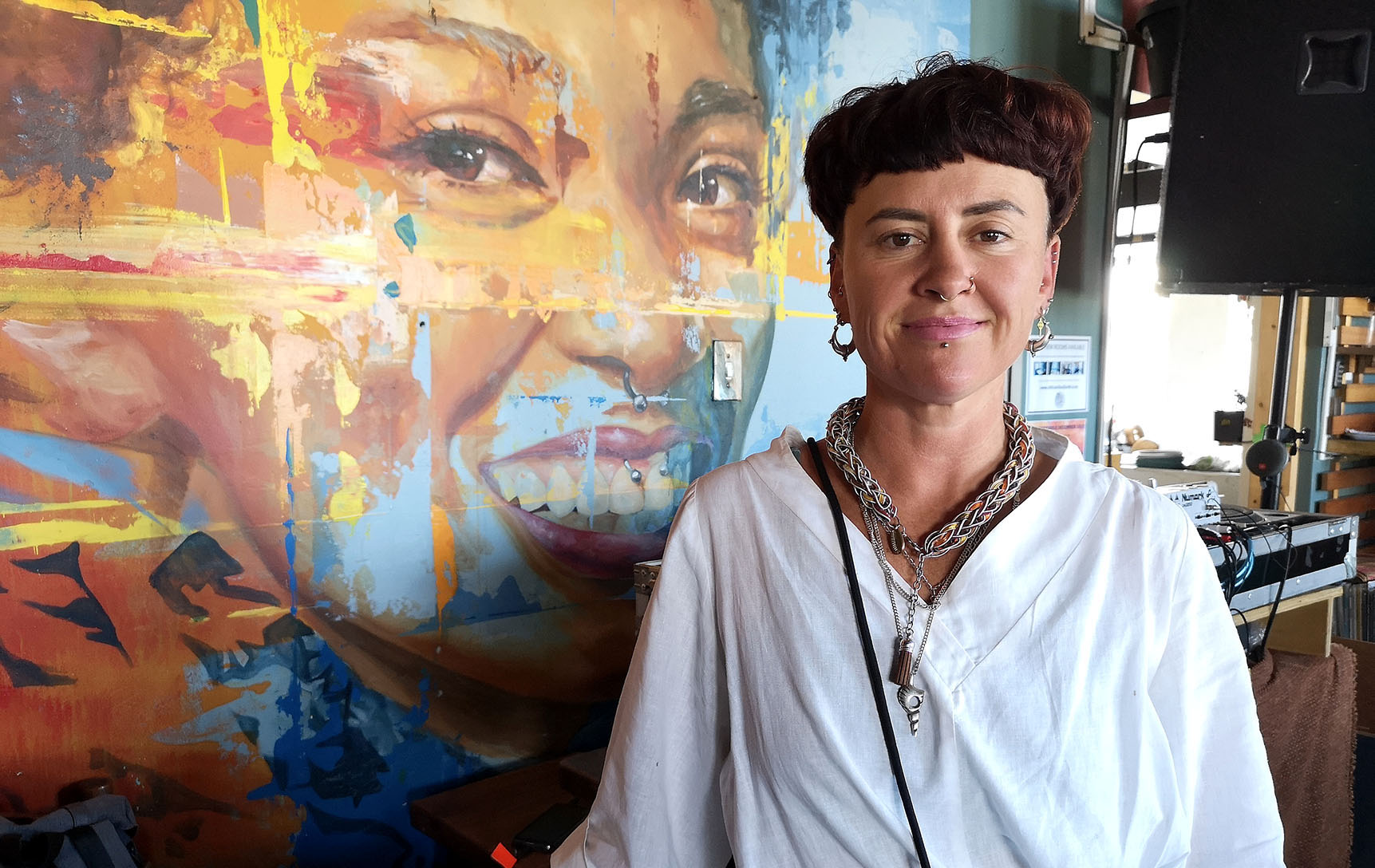
Candice Horn, owner of The Commons, a vegetarian café and live music venue in Muizenberg, says they had to replace equipment damaged by surges. (Photo: Tamsin Metelerkamp/Daily Maverick)
‘Without [a generator] we would definitely have had to close down as a business’ – Candice Horn
The Commons, a vegetarian café and live music venue in Muizenberg, opened during the Covid-19 pandemic. Candice Horn, owner of the establishment, told Daily Maverick that she has been looking forward to the holiday season.
“We haven’t had a proper busy season, I’ve never experienced it, and I’m definitely getting an experience of it now,” she said.
While staff at The Commons are largely used to rolling blackouts, running a live music event off a generator is very stressful, continued Horn. It requires a team of people to ensure things run smoothly.
“[It’s] also just the cost factor… we’ve had to get a backup UPS System to keep the internet running. As a café that runs by day, we have to have the internet going,” she said.
The café has lost equipment to rolling blackouts, with electrical surges causing printers, fridges and other appliances to blow. The resultant costs add up to thousands of rands.
“Even buying a generator for us was a huge expense that we actually couldn’t afford, and we had to take cash from ourselves, basically, to get the generator,” said Horn.
“We don’t regret that at all because we really need it. We wouldn’t have been able to function without it; we would definitely have had to close down as a business.”
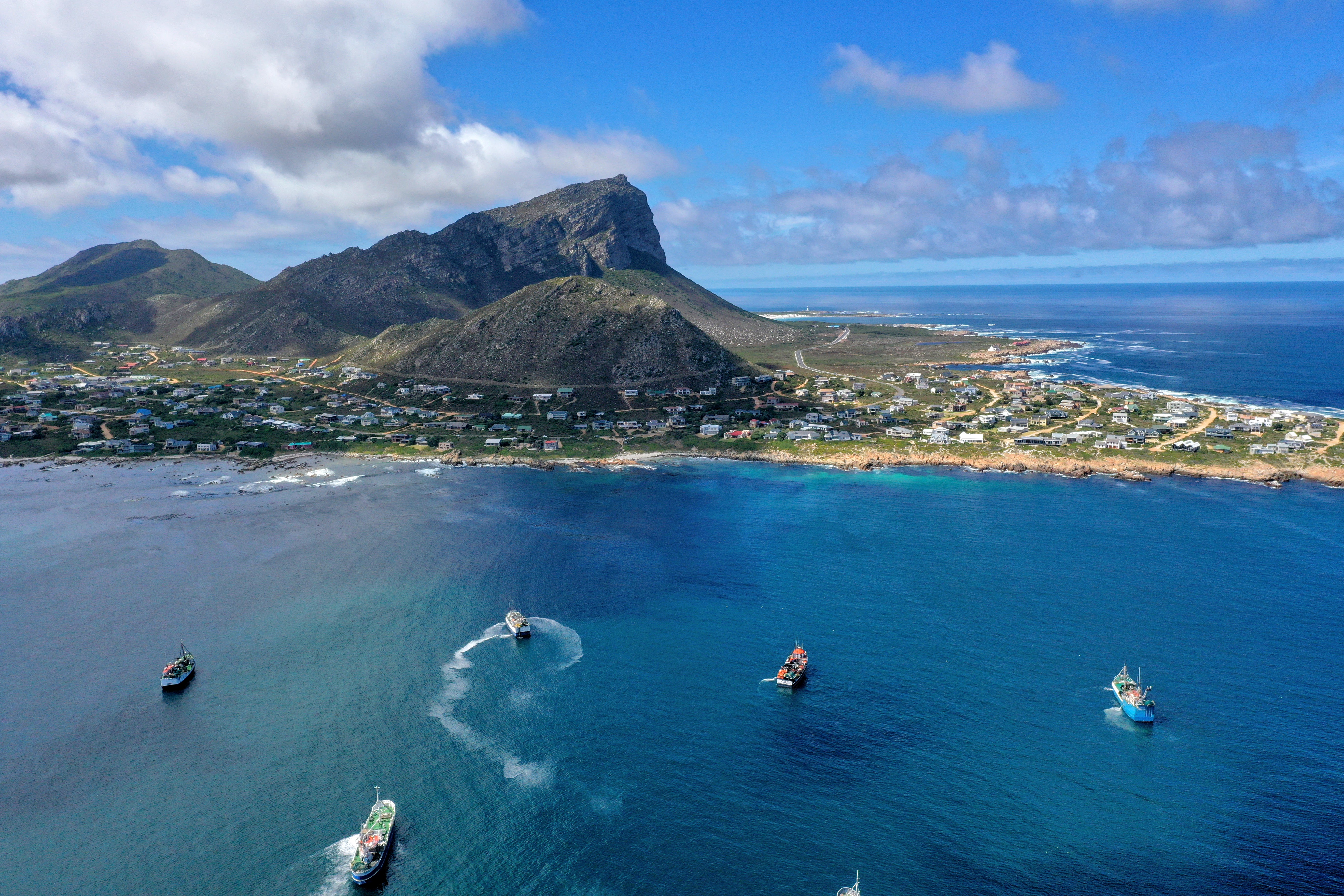
Seagull’s View of Pringle Bay. Image: Pieter Malan
To Pringle Bay
‘It really is quite a terrifying balancing act’ – Teri Seward-Case
Businesses in other Western Cape towns are facing many of the same challenges as those in Cape Town. In some cases, these are compounded by supply chain issues.
In October, Teri Seward-Case took over La Galerie restaurant – in Pringle Bay, a coastal village in the Overberg region of the Western Cape.
“We are about 40 minutes from Cape Town, maybe half an hour from Somerset West and Strand, which has a main supply point, and the whole supply chain has been impacted [by rolling blackouts],” said Seward-Case.
“So, when you’re asking for something, you have to give them an extra day or two’s notice because they simply will have their own problems to contend with. But if you’re dealing with something perishable, you don’t have that luxury. It really is quite a terrifying balancing act.”
Persistent outages take a toll on staff as well, as they are unable to use equipment as they usually would, she continued. Blackouts at 8am mean that some staff have to begin the work day earlier in order to prepare key goods such as croissants and muffins.
“We’ve tried to make sure that our systems are running as best we can. We’ve got two generators, so we’ve had an electrician support us with how best to load our generators with our appliances,” explained Seward-Case.
“When you try and get too many things on one circuit, it doesn’t work and things will trip. And we uncovered the hungrier appliances very quickly.”
Seward-Case has shifted many elements of the restaurant’s kitchen onto a gas system, and has plans to convert the coffee machine – one of the more power-hungry appliances – to gas-based.
“We’re committed to making the business work – 20 families are dependent on that income, and we’ve got a social responsibility here,” she said.
“It’s shocking that the public has to pick up the tab for this mess. The ruling government inherited one of the world’s most efficient power delivery systems and they have managed to bring it to its knees… with somehow no accountability.”
To Backup Power
‘All our Airbnb owners realise the importance for people… to be able to use the internet’ – Elmarie Horak
For CapeHolidays, a Cape Town accommodation agency that markets and manages the properties of Airbnb owners, backup power options are a priority for holiday accommodation. Elmarie Horak, owner of the company, advised that all Airbnb hosts should invest in backup systems.
“We’ve got inverters in 99% of our properties. Obviously, there’s a cost involved to get all of that, but all our Airbnb owners realise the importance for people coming on holiday to be able to use the internet during load shedding – a lot of them work remotely as well even when on holiday,” she said.
“We haven’t got enormous backups but we’ve got inverters with double batteries so it helps them through load shedding.”
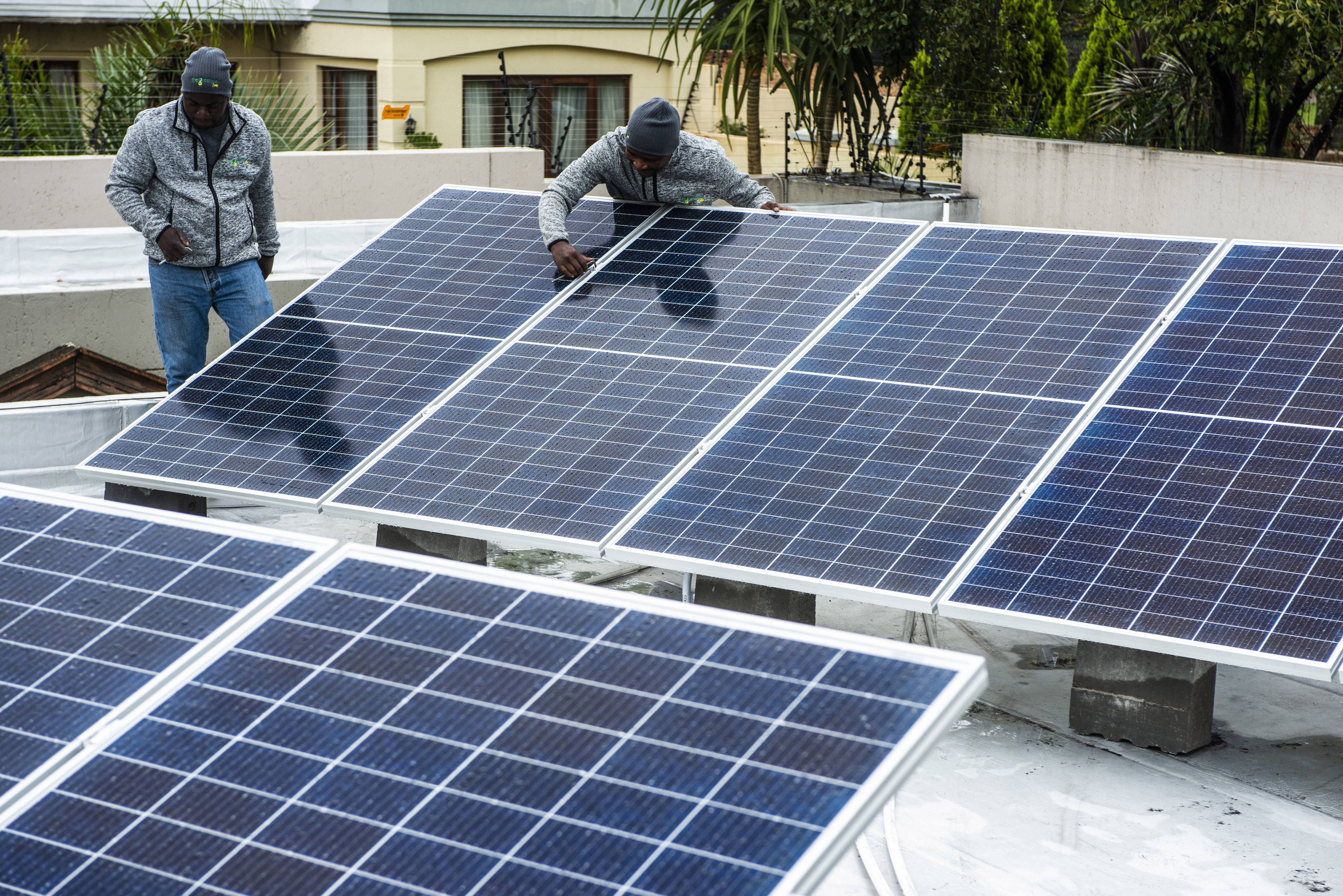
Solar panels are installed on the roof of a property in Johannesburg. (Photo: Waldo Swiegers / Bloomberg via Getty Images)
Those few CapeHolidays properties that do not have backup power options are definitely affected when it comes to bookings, continued Horak.
“I had an enquiry today [about] one of the properties where people want to work remotely for the whole month of February, and just because we haven’t got that backup for them, they decided they’ll go somewhere else,” she said.
“We’re very upfront with people, so it’s in all our descriptions, so people are aware before they book a property whether we’ve got that backup or not.”
A search through South African Airbnbs shows that some have taken to putting notes such as “No load shedding” in property descriptions.
‘Smaller businesses… are forced to adjust their operations’ – James Vos
Many larger businesses in tourism and affiliate industries are able to mitigate the effects of rolling blackouts through renewable energy solutions or the use of generators, according to Vos.
“It is, sadly, smaller businesses and tourism operators who do not have such resources and are forced to adjust their operations,” he said.
“From my daily engagements with businesses in factories and boardrooms, I’ve seen how their production lines are affected and there have been tough conversations around how they cope. Often, they are forced to divert budget from things like hiring more staff to taking measures to keep the lights on.”
The national picture
South African Tourism has not yet conducted a full economic impact study of rolling blackouts on the national tourism sector, according to spokesperson Thandiwe Mathibela. South African Tourism is the tourism-marketing arm of the South African government.
“Unfortunately, load shedding is affecting all spheres of the economy and society, and the tourism sector is not spared from this,” said Mathibela.
“We do know that smaller businesses that do not have enough funds and resources to raise the additional capital needed to have these backup systems are the hardest hit and sadly these are also businesses that are trying to still recover from the impact of the Covid-19 pandemic.”
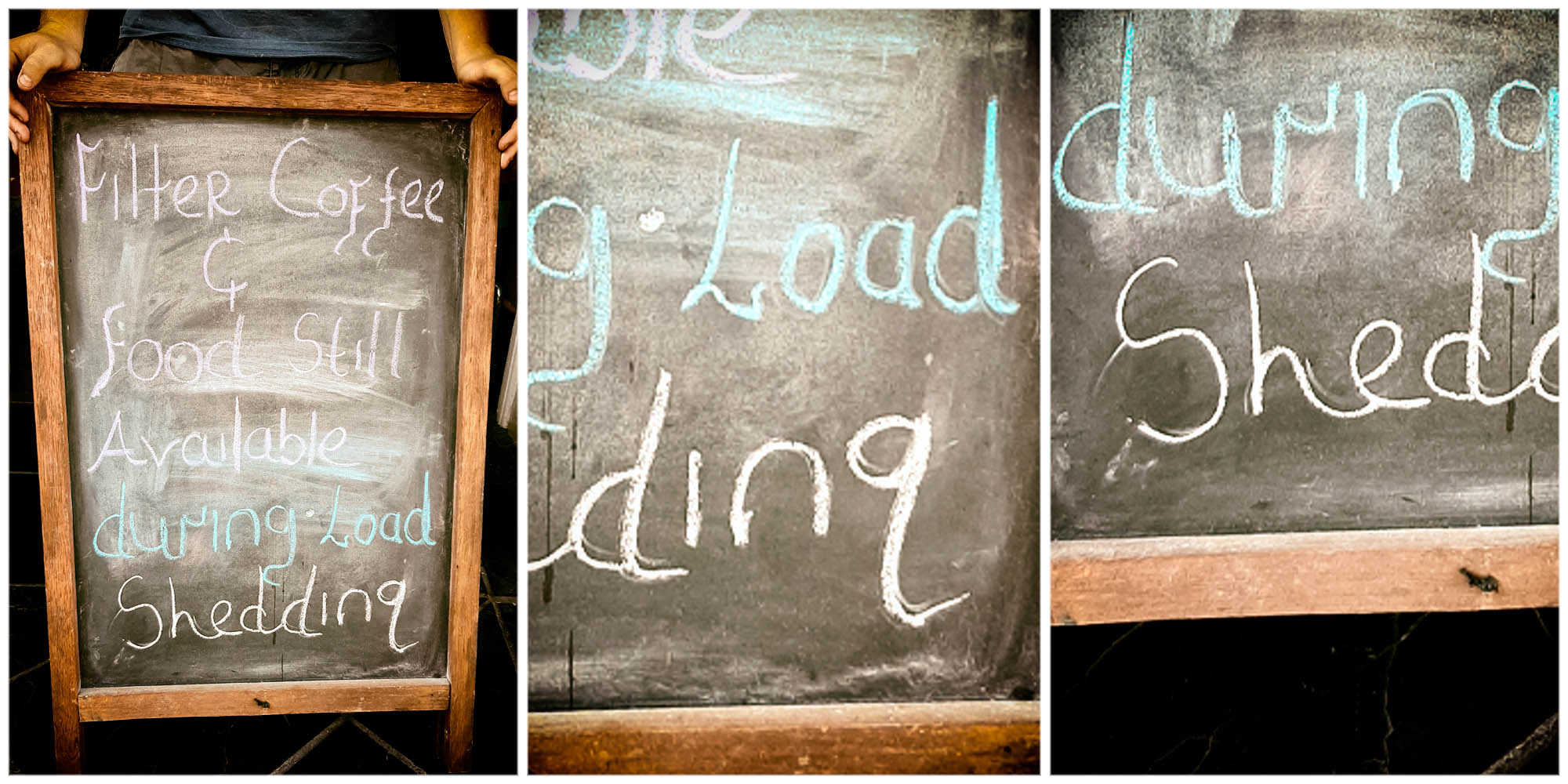
Archive photo from 2019: A sign outside Will’s Café and Deli in Oranjezicht . (Photo: Lia Snijman)
According to Mathibela, the Department of Tourism is offering some relief to businesses in the sector through the Green Tourism Incentive Programme (GTIP), a resource efficiency grant-funding mechanism that encourages privately owned tourism enterprises to adopt responsible tourism practices.
“The programme assists graded enterprises to reduce the cost of investing in energy- and water-efficient operations, which will lower their cost of operations and facilitate increased competitiveness and operational sustainability in the tourism sector,” she said. DM


















 Become an Insider
Become an Insider
Wow that’s great,, we’d love u in Atlanta Georgia,, so much to do in this region. Lots of down to earth people. anyone will accept you for who you are regardless of background